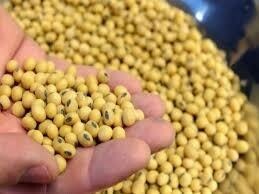When the world car market was powering ahead, rubber from Prajuab Nuipin’s plantation in Thailand was in hot demand. But with the boom days over, he is wallowing in debt.
Mounting anger among the kingdom’s rubber farmers about the impact of a slump in demand on world markets poses a new challenge to Prime Minister Yingluck Shinawatra’s two-year-old government.
Prajuab was one of thousands of farmers who joined mass protests this week in southern Thailand, calling for financial help to cushion the blow of a downturn that has seen rubber prices roughly halve since 2011.
“I don’t know why the price has fallen but the government must help us,” the 41-year-old said.
He said his income had almost halved in recent years to about $1,000 a month from the roughly 16 acres of land in the southern province of Surat Thani where he grows rubber and oil palm trees.
“I’m suffering with the cost of living,” said Prajuab, who has debts of about $3,000 and is struggling to feed his four children and meet payments for his truck.
Thailand is the world’s top exporter of natural rubber and, like in other Southeast Asian countries, its farmers rushed to plant more saplings when times were good.
But by the time the new trees were ready to tap, the Western and Chinese economies had lost their lustre, leaving the global market with a supply glut as demand for cars and other goods wilted.
“In recent years the global price of rubber has been on the decline mainly because of overproduction coming from countries like Thailand and Indonesia,” said Simmathiri Appanah, a natural resources expert formerly with the UN Food and Agriculture Organization.
“Now others like Vietnam and southern China are also producing rubber so this will definitely affect the market,” he told AFP.
“With the economic slowdown in many of the developed countries’ economies, demand for these products is going to stall somewhat.”
Thai farmers are also struggling to compete with the big rubber estates in countries such as Malaysia which are more cost effective.
Unscrupulous middle men also take a large cut of the profits.
“The middle man is a source of the problem. They can be very rapacious,” Appanah said.
“They are usually small traders who undervalue the products and buy it cheap and sell it at better prices in the market. They don’t give a decent price to these farmers.”
Rubber has also emerged as a political issue in Thailand, which has been rocked by a series of mass protests and sporadic street violence in recent years.
The mosquito-infested rubber plantations of southern Thailand are located in the heartland of the opposition Democrat Party.
The farmers who tap the trees for the milky white latex have accused the government of ignoring their plight while spending billions of dollars on a rice price guarantee scheme seen as mainly benefiting ruling party supporters.
The rice buying programme has placed a heavy burden on the Thai public finances at a time when the world’s emerging markets — once the darling of global investors — are seeing heavy selloffs of their stocks and currencies.
In another setback to Yingluck, the Thai economy entered a technical recession in the three months to June with a second consecutive quarterly contraction.
The government says another generous price guarantee scheme is something it cannot afford.
So far the rubber protests have been mostly peaceful, but lurking in everyone’s minds is the fear of a fresh bout of violence in the politically troubled kingdom.
More than 90 people, mostly civilians, were killed and nearly 1,900 were injured in 2010 as mass demonstrations by supporters of Yingluck’s brother, fugitive former premier Thaksin Shinawatra, descended into Thailand’s worst political bloodshed in decades.
The government earlier declined demands to guarantee a rubber price of 120 baht ($3.7) per kilo — about 50 percent higher than the current price on world markets.
Instead it proposed paying farmers 1,260 baht per rai (0.4 acres) of rubber plantation to help with production costs, along with funds to boost the efficiency of rubber processing — an offer rejected by the protesters.
The farmers stepped up their pressure on Wednesday by blocking the main entrance to an airport in Surat Thani in southern Thailand used by foreign tourists, although flights continued to operate.
But police said the protesters had dispersed by early Thursday as they awaited a promised response from the government to their latest, reduced demand to guarantee a price of 92 baht per kilo — about a third more than Prajuab receives now.
If the government accepts the deal, “I will go home,” he said.
Source: AFP


























